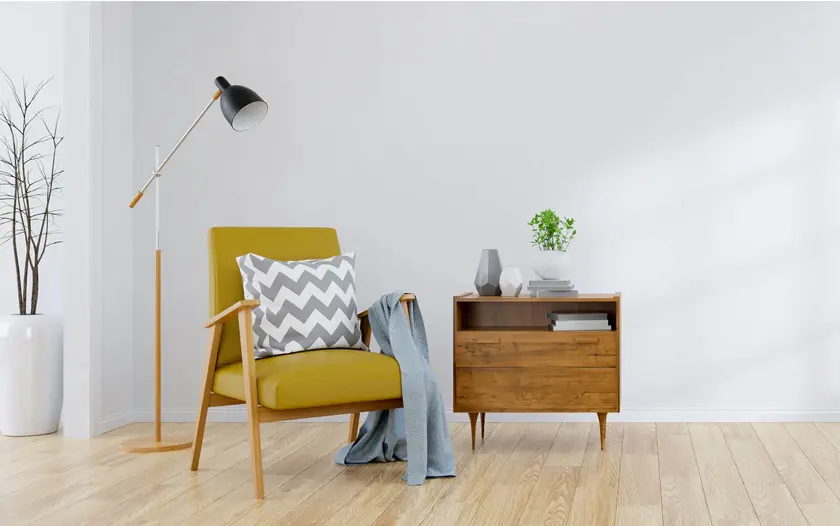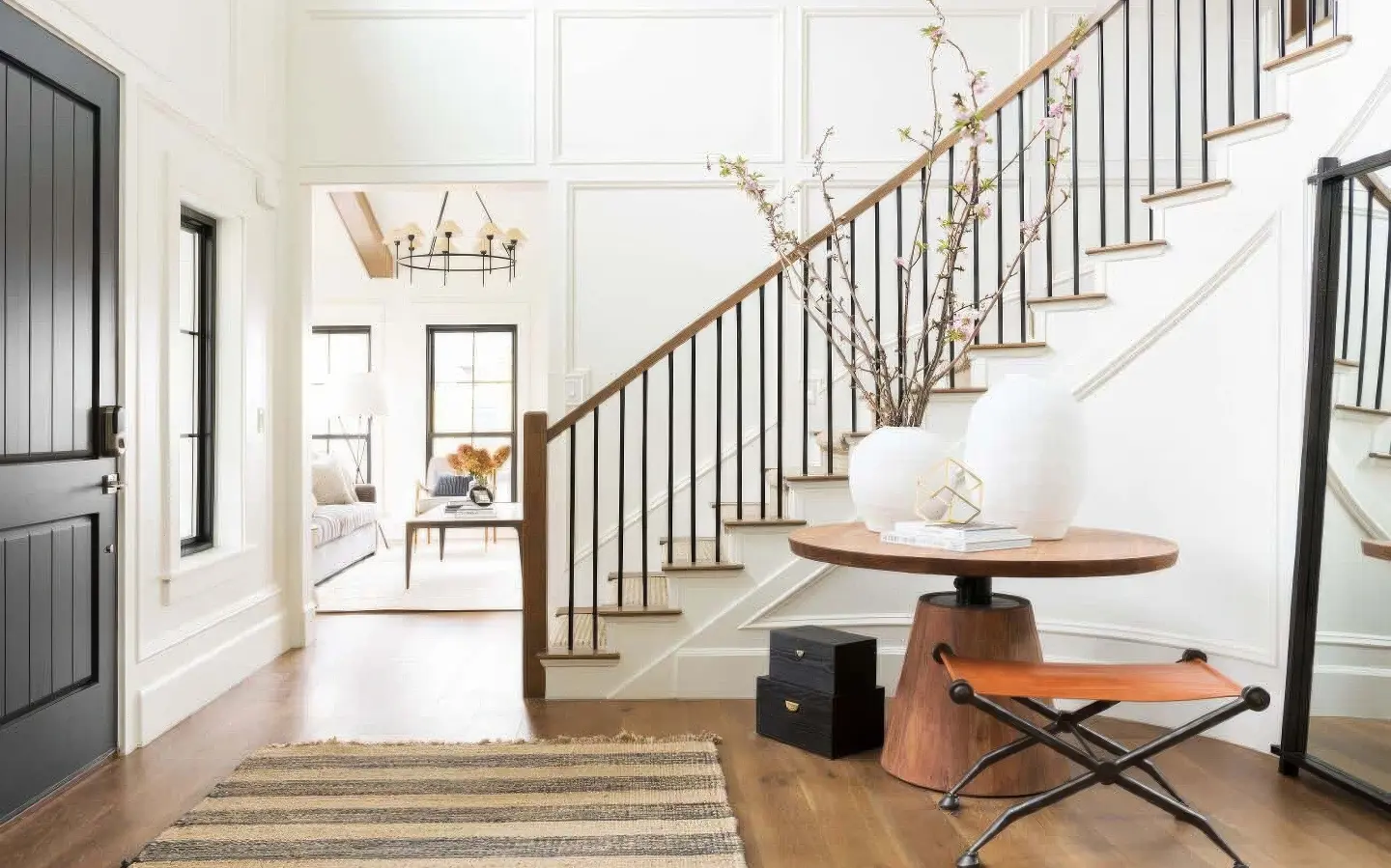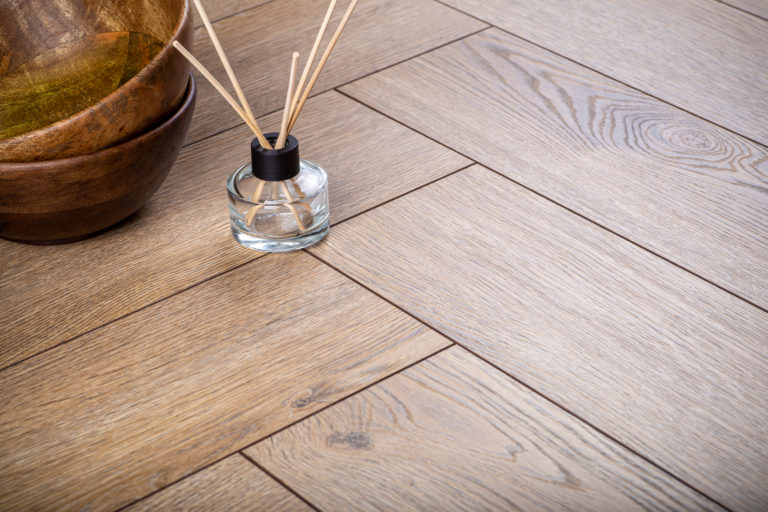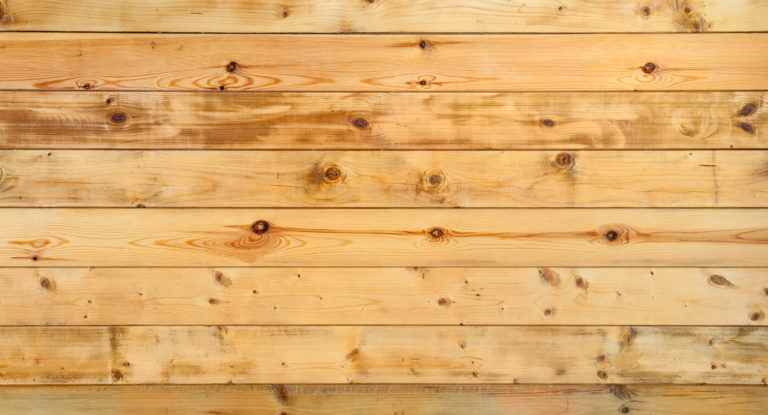Proximity Mills established themselves as one of the biggest flooring brands in the USA. In this Proximity Mills review, we’ll be taking a look at a range of things, from their products to their focus on sustainability and overall quality compared to the competitors in the flooring market.
Let’s delve into what they’re offering and how it stands up to real-world use, without the embellishments or flashy claims often found in the flooring industry.
What Do They Sell?
LVP Flooring
You’ve probably seen or heard about their luxury vinyl plank (LVP) flooring first. It’s quite strong, doesn’t get ruined by water, and can handle a lot of foot traffic without looking worn out. It’s made from a mix of stone and plastic (SPC), making it last a long time. Plus, it’s a breeze to clean. Just a quick sweep or mop does the trick.
With a variety of styles and colors, there are loads of options to choose from, typically ranging from $2 to $7 per square foot.
Hardwood flooring
Hardwood flooring from them is also a great choice. Hardwood is known for its beauty and elegance, and it is one of the best-selling options in the flooring market for a reason. These floors are designed to withstand the tests of time, becoming more characterful with age.
While hardwood is generally pricier, with their selection, you’re likely to find options that fit a range of budgets, typically from $6 to $12 per square foot.
Best Brands of 2024
Carpet and Tile flooring
The carpet and tile floors are also worth taking a look at. Their carpets are made to resist stains and not fade over time, and what we’ve found great about the tiles is that they are cut quite precisely so the overall look is very neat and tidy when laid down.
The carpets come in a rainbow of colors, ensuring there’s something for every room and mood, generally available from $1 to $4 per square foot.
Meanwhile, their tiles offer the kind of durability that’s hard to beat, with beautifully intricate designs that are ideal for kitchens and bathrooms, with pricing that can range from $5 to $15 per square foot, depending on the material and design.
Sustainability Efforts

Proximity Mills is trying to be eco-friendly by making sure their products can be recycled and come from places that don’t harm the environment. It’s something more people care about these days, and it’s nice to see a company paying attention to this. In the world of home improvement and interior design, Volatile Organic Compounds (VOCs) are the uninvited guests that often tag along with everything from a fresh coat of paint to sleek new flooring.
Low-VOC flooring is more expensive to make, but it’s commendable that this company has things like that in mind when producing their flooring. Their floors don’t just look good; they’re also certified by GreenGuard and FloorScore, which means they meet some really high standards for being non-toxic.
Buying Experience
Instead of selling in big stores, Proximity Mills works with local shops. This means you might get more help finding what you need, but their products might be harder to find compared to bigger brands.
Our Proximity Mills Review Verdict: A solid choice
So, what’s the truth? Proximity Mills looks like they’re doing a lot of things right. They make durable products, think about the planet, and try to keep the shopping experience simple and personal.
But no floor is perfect for everyone. The true test is how these floors perform in your own home over time. Will they stand up to everything your family throws at them? Will they still look good years from now? We think the answer is “yes” to both of those questions.
If you’re thinking about getting new flooring, Proximity Mills might be worth a look. Not because they’ve got the biggest marketing budget or the best PR in the business but because they focus on making quality flooring that does its job well, day in and day out. Sometimes, it’s not just about the hype. It’s about having a solid floor under your feet.
About The Author

Samuel Greenberg
March 26, 2024
Associate Director of Content Marketing at FlooringStores (and its parent company, Broadlume), Samuel is a former travel writer, English teacher, and semi-professional trivia host. When he’s not creating content, he can be found doing crosswords, drinking coffee, and petting the office dogs.






